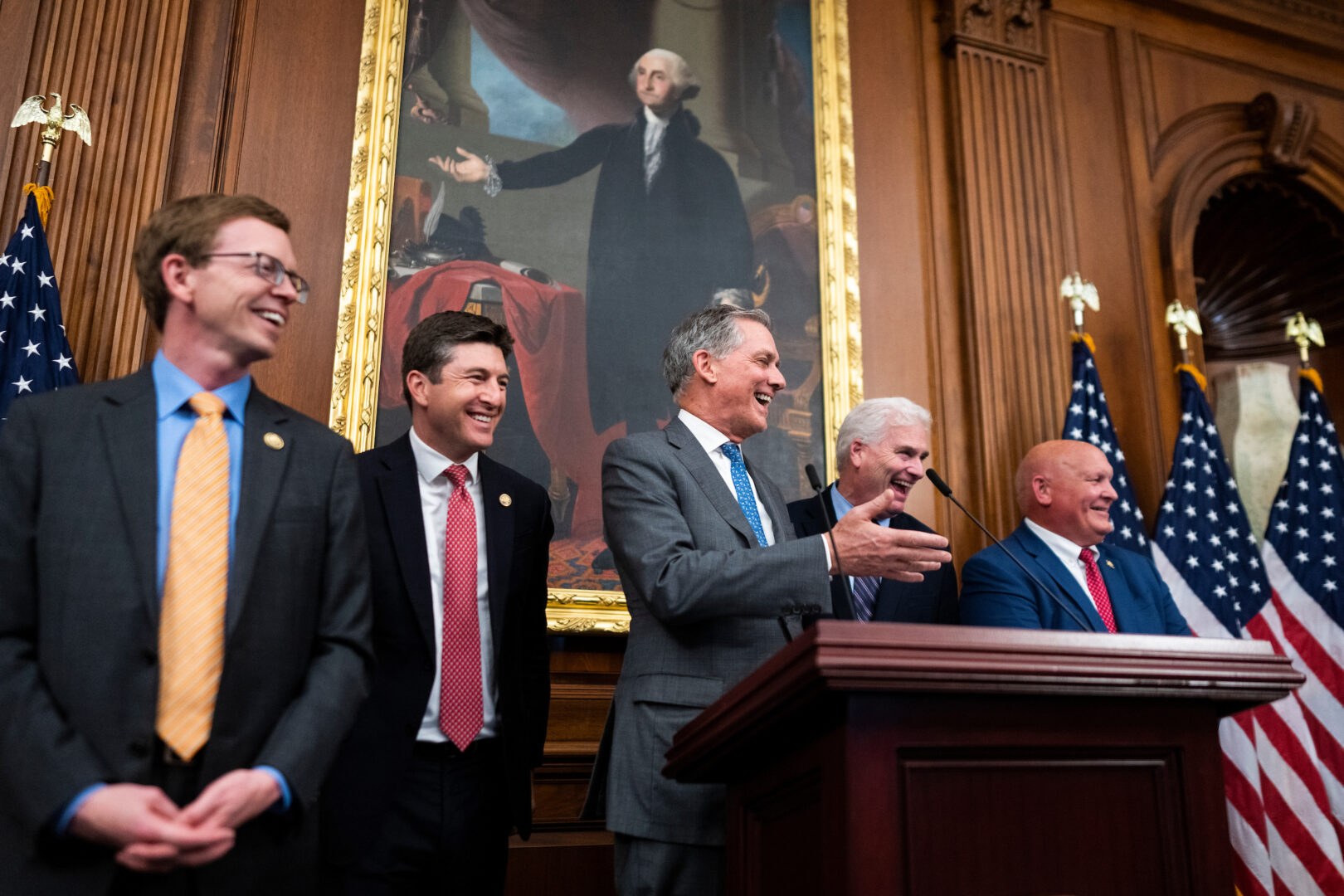Bill to establish regulations for stablecoins heads to Trump’s desk
Following two days of struggles to overcome procedural hurdles, the House passed three bills Thursday that would shape how digital assets operate and are overseen, marking a breakthrough for the sector and sending one of the bills immediately to President Donald Trump for signing.
Almost every Republican backed each bill, while Democratic support varied by measure.
One of the bills would establish regulations for stablecoins, a crypto token that is tied to a reserve currency, in this case, the U.S. dollar. The House vote, 308-122, cleared the legislation for the president.
After the Senate passed the stablecoin bill in June, Trump and Senate leaders called on the House to pass it quickly and unchanged. The House set aside its own stablecoin bill, which the House Financial Services Committee had approved in April.
The House also passed a bill, 294-134, that would set rules for the offering, sale and regulation of digital assets generally, known as market structure. Democratic support for the bill — 78 — was higher than Democratic backing — 71 — of similar legislation in the previous Congress.
The third bill, which would prevent the Federal Reserve from issuing a central bank digital currency, passed, 219-210.
The CBDC bill was at the crux of a House impasse this week caused by some members of the House Freedom Caucus, who were concerned that the Senate stablecoin bill would allow for a central bank digital currency.
A dozen members of the caucus voted Tuesday against a rule to consider the crypto legislation. They continued to resist the rule Wednesday until the situation was resolved by an agreement between House leaders and the dissenters to attach the CBDC legislation to an upcoming defense authorization bill. The House Armed Services Committee approved its fiscal 2026 defense policy bill earlier this week.
The passage of the trio of crypto measures marked a successful end for Republicans to what they deemed “Crypto Week.” They said the bills would provide a crucial regulatory framework for crypto and help establish the U.S. as a leader in financial and payments innovation.
“These bills are about protecting American consumers, protecting investment, bringing capital back the United States [and] making the United States a fintech leader in payments and in digital assets,” House Financial Services Chairman French Hill, R-Ark., said during the floor debate.
Hill also stressed that even though the Senate stablecoin bill is headed for a presidential signature, enacting the market structure bill also is a necessity for the development of crypto markets.
“Only by passing both will this Congress fully usher in the era of digital finance and ensure that Americans are protected whenever they engage with digital assets,” Hill said.
Most Democrats opposed the bills, asserting they contain weak safeguards for consumers and financial stability and to prevent money-laundering and other malfeasance. They raised concerns that the bills are a gift to the crypto industry, which spent about $140 million in last year’s campaigns to help elect pro-crypto lawmakers.
They also said that the stablecoin and market structure bills would turbo-charge Trump’s crypto conflicts. His family owns stakes in a memecoin and a stablecoin.
House Financial Services ranking member Maxine Waters, D-Calif., and other Democrats had been advocating to amend the market structure bill, nicknamed the “Clarity Act,” to ban the president and other public officials from sponsoring cryptocurrency.
“And, yet, even if we included language to stop the crypto con, this bill, which should be called the ‘CALAMITY Act,’ is bad public policy, plain and simple,” Waters said on the House floor. “This bill would lead to increased investor harm, plant the seeds for the next financial crisis and endanger our national security.”
Waters said that bipartisan efforts to advance a stablecoin bill in the last Congress didn’t continue in the current Congress due to Trump’s election, which also “brought a significant new challenge to stablecoins — the Trump family’s brazen corruption using crypto to sell access in exchange for official acts.”
She added: “And it just so happens that stablecoins are one of the main vehicles Trump is using to make his corrupt crypto billions.”
Democratic amendments addressing Trump’s conflicts were voted down at the market structure bill’s markup. Rep. Jim Himes, D-Conn., said it was the primary reason he voted against the bill.
“I really intended to be a ‘yes’ on the market structure [bill],” Himes said in an interview earlier this week. “But I spent six weeks asking for strong conflicts language to prevent the kind of corruption that we’ve seen out of the White House, and the Republicans said ‘no.’ So, they’re going to give up a lot of Democratic votes because of that.”
But there also were Democrats who backed the bills.
The market structure legislation would define when a digital asset is a commodity regulated by the Commodity Futures Trading Commission and when it’s a security regulated by the Securities and Exchange Commission. The bill was a joint effort between the House Financial Services and Agriculture committees.
Democrats on the Agriculture panel gave strong support to the market structure bill. Some Democrats from Financial Services also got on board.
Rep. Josh Gottheimer, D-N.J., voted in favor of the legislation, saying it wasn’t flawless, but it was better than not establishing policy toward digital assets.
“We desperately need rules of the road to protect consumers and to ensure the success of American entrepreneurs and ensure that America leads the way” in the growing sector, Gottheimer said on the floor.
“Is it perfect? No, it’s not perfect. But few pieces of legislation are. The question is, will it do good? To do nothing is to ensure Trump’s coin will have no oversight,” he said.
More Democrats voted for the stablecoin bill because that cryptocurrency is seen as safer thanks to the reserves backing it.
The Senate is working on its own market structure bill, which Senate Banking Chairman Tim Scott, R-S.C., hopes the chamber will act on by the end of September.


